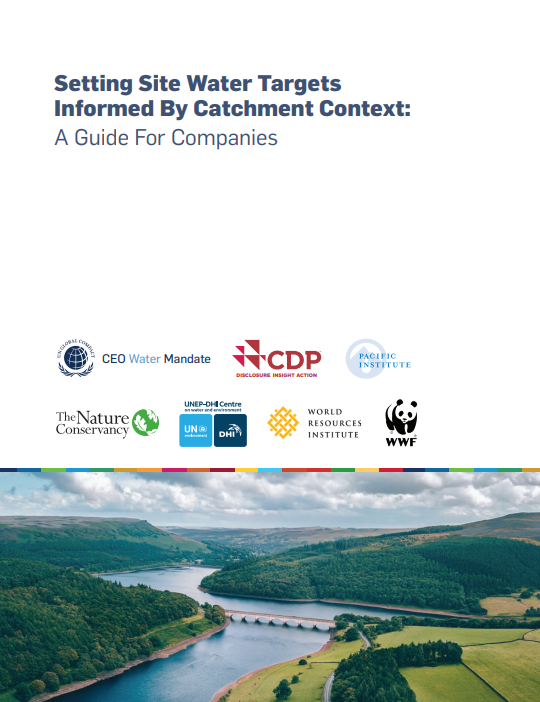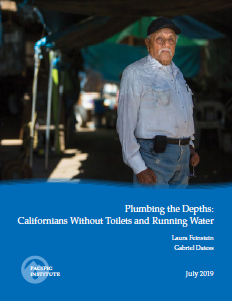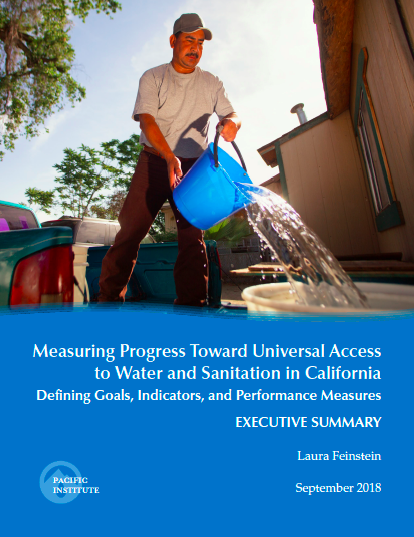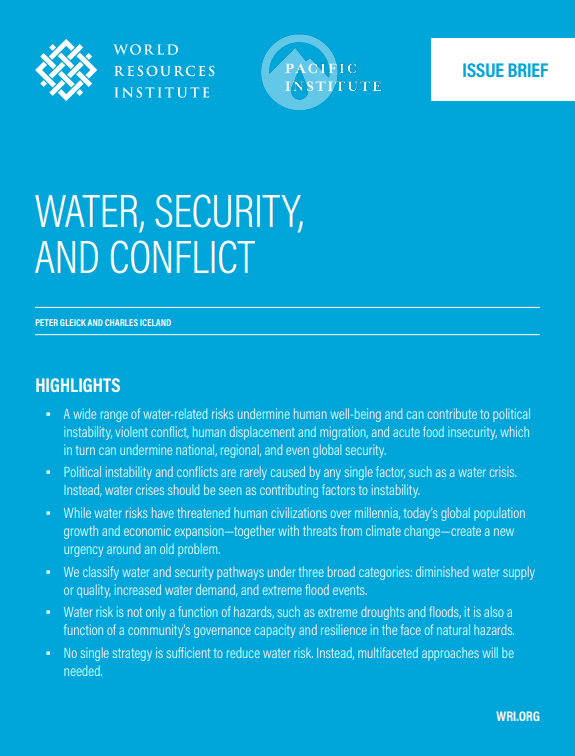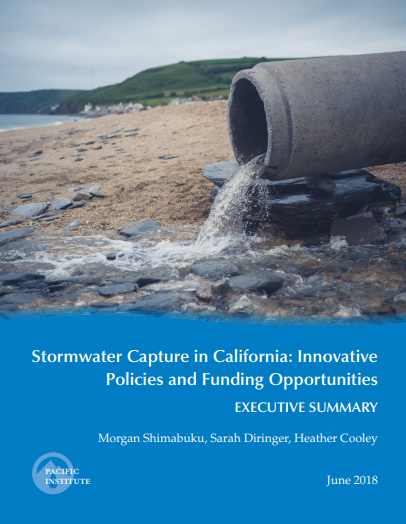1430 Resources

Climate Change and Water
March 19, 2013 | post
Since its founding, the Pacific Institute has been at the forefront of research on the impacts of climate change on water resources and on strategies to reduce those impacts. The water cycle and the climate cycle are inextricably linked.
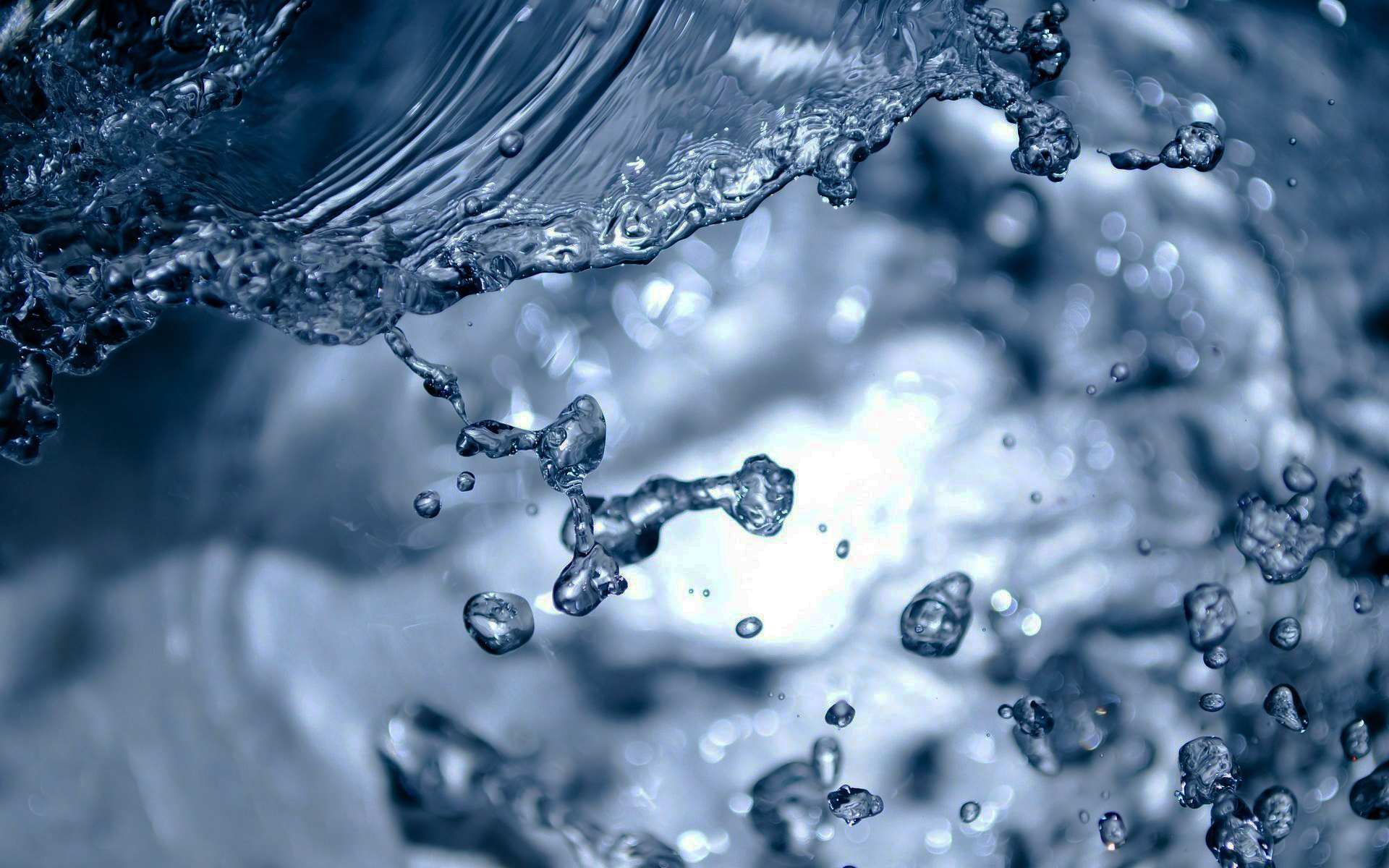
The CEO Water Mandate
March 19, 2013 | post
The UN CEO Water Mandate is a unique public-private initiative – established by the UN Global Compact in 2007 and endorsed by global companies from a variety of industry sectors – designed to assist companies in the development, implementation, and disclosure of corporate water stewardship practices and policies.

Business Engagement with Water Policy
March 19, 2013 | post
Many water-related business risks stem from ineffective or non-existent public water policy and management. These risks are much more difficult to address than those associated with internal business practice since companies have limited influence in public water governance and decision making.

Business Case for Water Sustainability
March 19, 2013 | post
Emerging corporate practice and research suggest that the environmental, political, and social realities of the 21st century mean that environmentally and socially responsible corporate water management is not only an ethical responsibility for companies, but also increasingly an integral part of ensuring business viability and reducing business risk.

Water, Conflict, and Business
March 19, 2013 | post
Water resources have rarely, if ever, been the sole source of violent conflict or war.

Popular Education and Leadership Development
March 19, 2013 | post
Popular education is an approach to building leadership that draws upon the everyday experiences of the people most affected by an issue as an important source of knowledge. In this approach, people “scale up” their individual experiences by creating a space of trust to share and discuss patterns in their experiences at a community level.
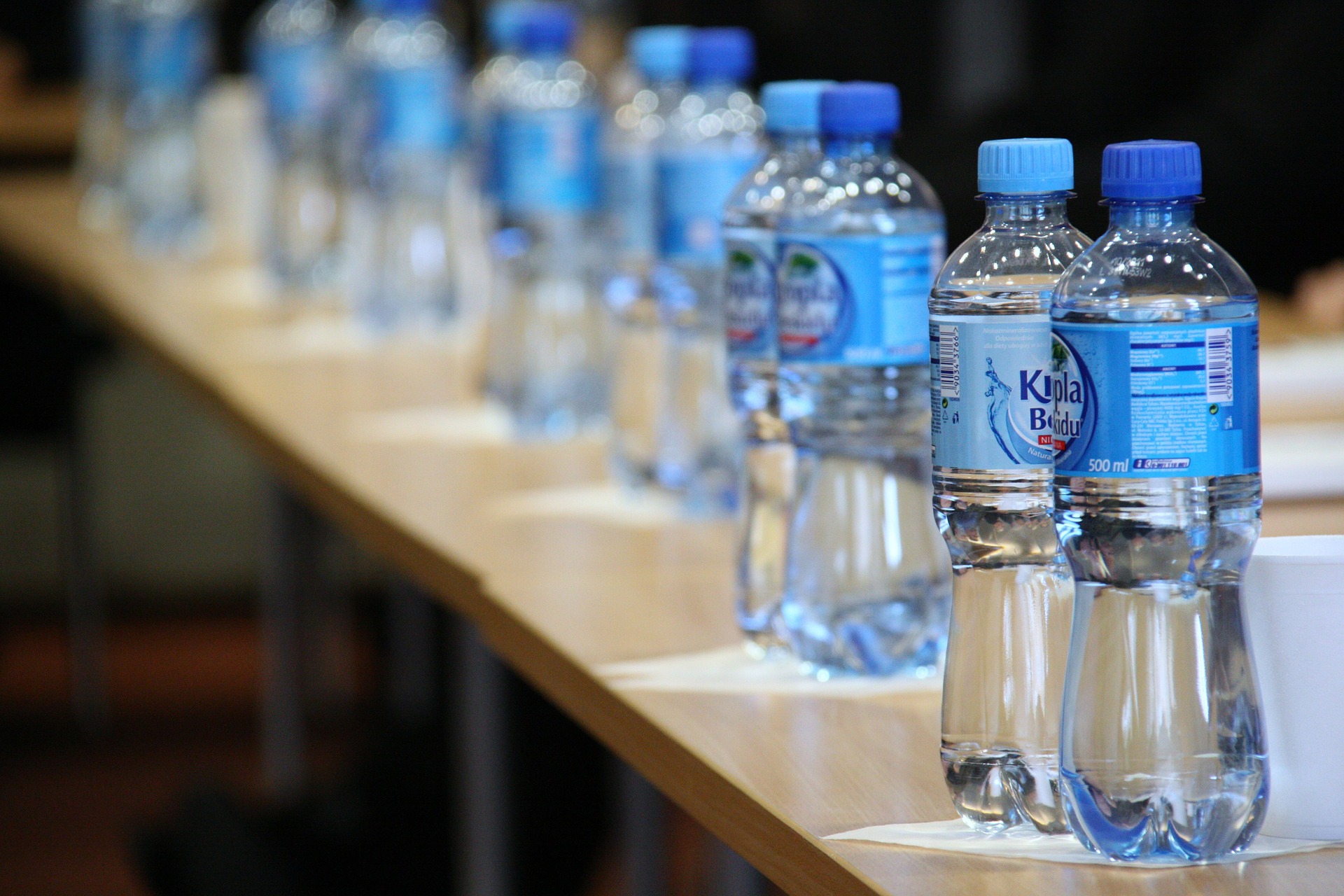
Bottled Water
March 18, 2013 | post
Sales and consumption of bottled water have skyrocketed in recent years. From 1988 to 2002, the sales of bottled water globally more than quadrupled to over 131 million cubic meters annually. Bottled water sales worldwide are continuing to increase annually far faster than almost any other category of commercial beverage.

Sustainability Standards Systems
March 18, 2013 | post
Over the past two decades, there has been a rapid increase in the number of people who have looked to align their social and environmental values with the way they spend their money. This nascent shift in capitalism spans from the certified organic food people eat, to the ethically produced shoes and clothes they wear, to the Socially Responsible financial investments they make for retirement. Partly in response to this emerging societal phenomenon, companies large and small and other institutions (including government and the financial sector) are also seeking to work with suppliers and partners that have a positive track record regarding their social and environmental practices.

Soft Path for Water
March 18, 2013 | post
The soft path directs governments, companies, and individuals to focus on sustainable ways to satisfy the needs of people and businesses, instead of just supplying water.
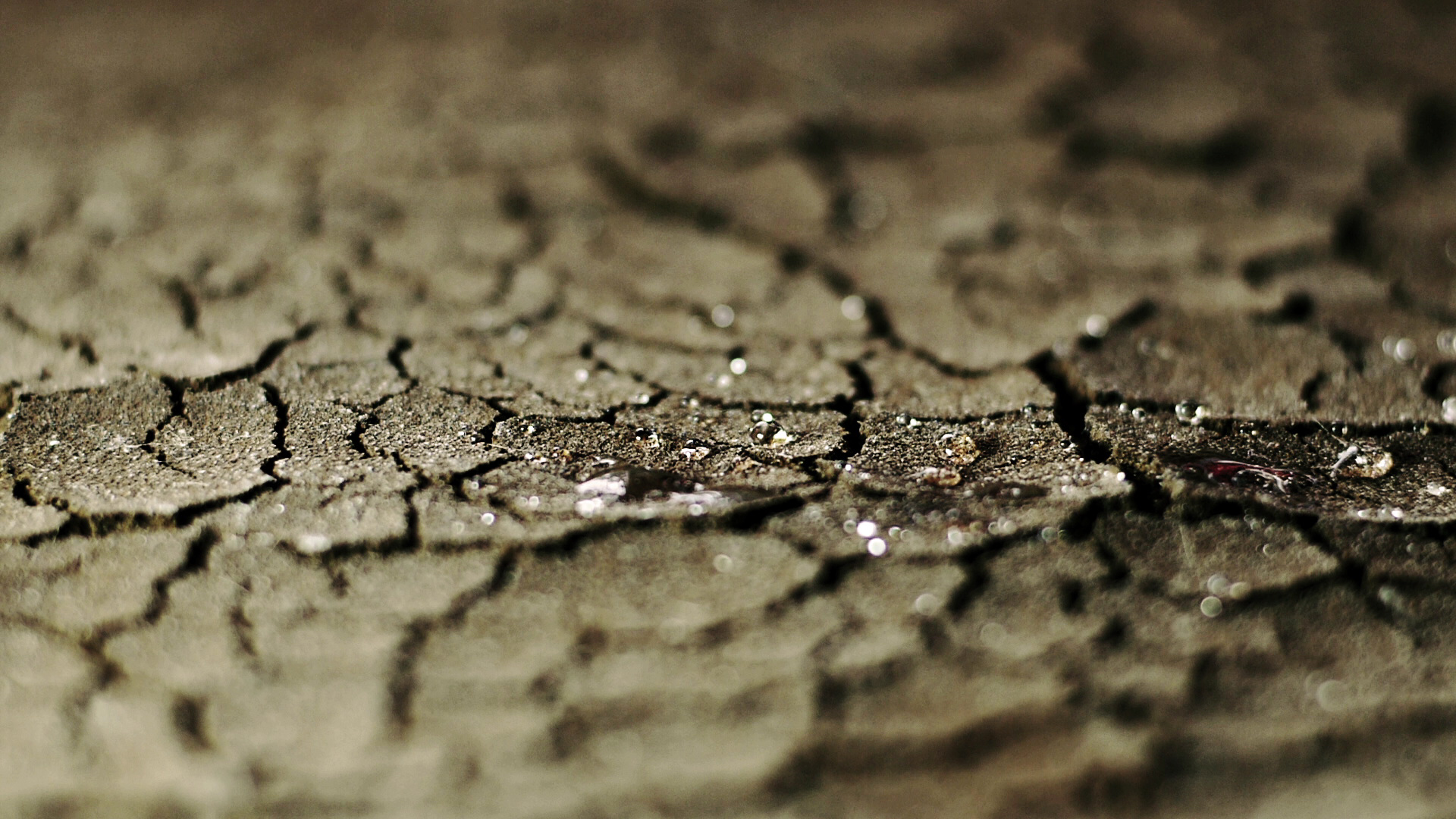
Salton Sea
March 18, 2013 | post
Since 2005, the surface elevation of the Sea has fallen by about a half foot per year, exposing thousands of acres of former lakebed to the desert’s blowing winds. Salinity at the Sea now exceeds 50 g/L – a third saltier than the ocean. And salinity continues to rise. Legislation enabling the 2003 water transfer agreement required the state to develop a restoration plan.

Recognizing the Human Right to Water
March 18, 2013 | post
The failure of the international aid community, nations, and local organizations to satisfy these basic human needs has led to substantial, unnecessary, and preventable human suffering.

Peak Water
March 18, 2013 | post
Freshwater resources are fundamental for maintaining human health, agricultural production, and economic activity as well as critical ecosystem functions.
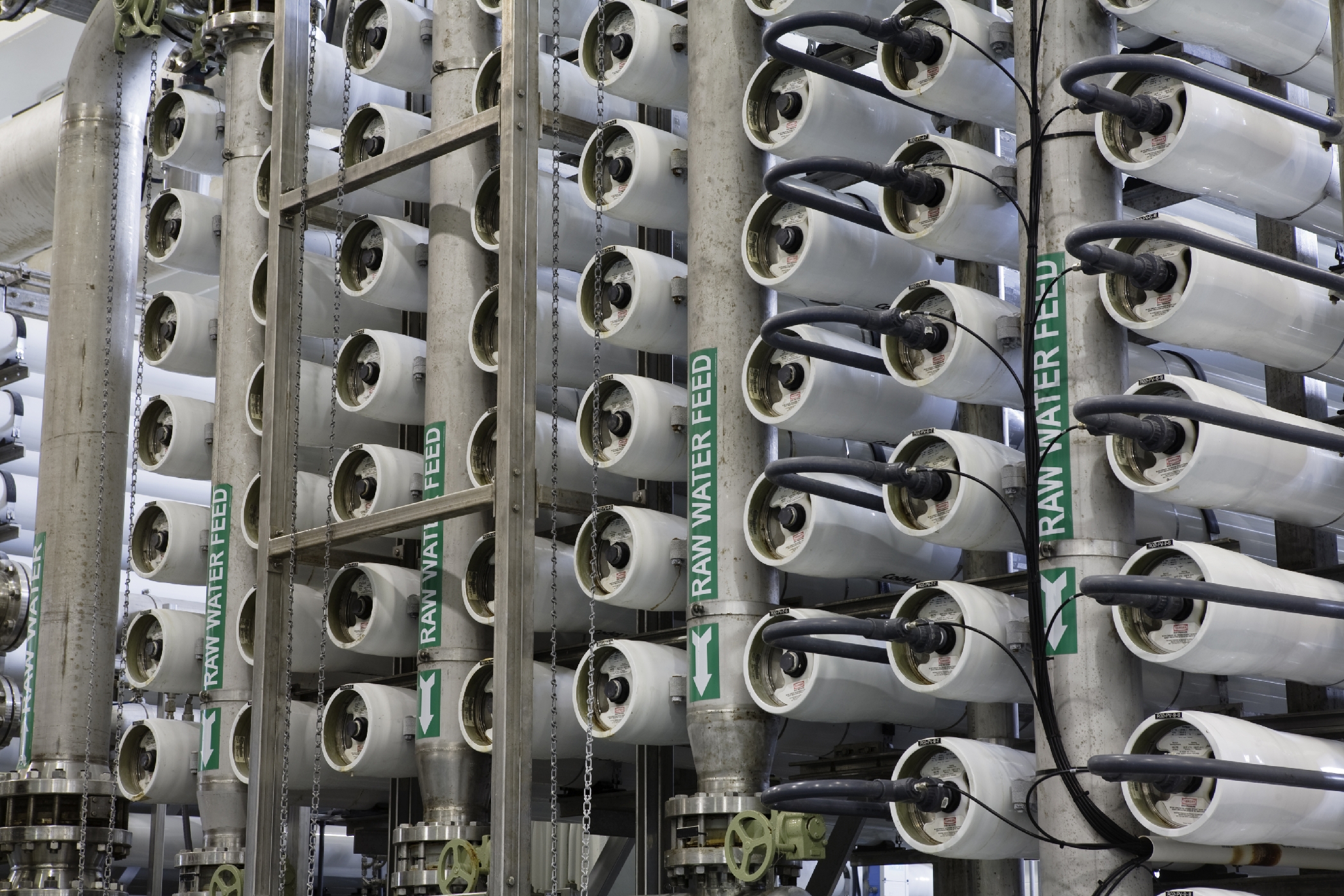
Desalination and Alternative Supplies
March 18, 2013 | post
Traditionally, freshwater has come from rivers, lakes, streams, and groundwater aquifers. As demand increases and climate change alters the location and timing of water supply, these traditional sources are becoming unavailable, more difficult, or increasingly expensive to develop. As a result, many communities are switching to alternative sources of water, including rainwater, stormwater, greywater, reclaimed water, and brackish and seawater desalination.

Business and the Human Right to Water
March 18, 2013 | post
Expectations for businesses to respect and in some cases help fulfill internationally recognized human rights have increased over the past decade. In turn, businesses also recognize how important appropriate management systems are in order to respond to these expectations and to protect core resources needed in their own business practices.

Water Quality
March 18, 2013 | post
Surface water and groundwater are not always static in their natural reservoirs. The water particles are always moving either vertically, laterally, or a combination of both through the banks and bottom of the reservoirs.

Water Privatization
March 18, 2013 | post
In the past two decades, water privatization — turning over some or all of the assets or operations of a public system to a private company — has been growing rapidly, as has concern and opposition to privatization.

Alliance for Water Stewardship
March 17, 2013 | post
Solving water challenges worldwide cannot be achieved through policy responses alone. Indeed, complementary sustainability strategies rely on economic tools (i.e., market-based instruments) that incentivize voluntary improvements in practice.
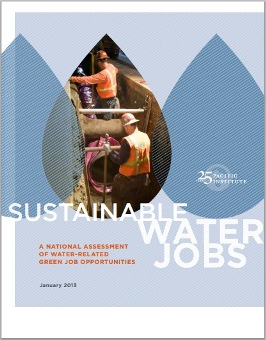
Sustainable Water Jobs: A National Assessment of Water-Related Green Job Opportunities
February 14, 2013 | publication
This comprehensive study finds that investments to increase efficient water use and reuse will both address growing problems associated with drought, flooding, and contamination, and simultaneously create jobs in a wide range of professions.

Notes from the Field: What We Know about Indonesian Urban Residents, Water Utilities, Local Government Agencies and NGOs at the Beginning of Our Third Year Developing WASH SMS
February 5, 2013 | post
Coming together is a beginning; keeping together is progress; working together is success. – Henry Ford.
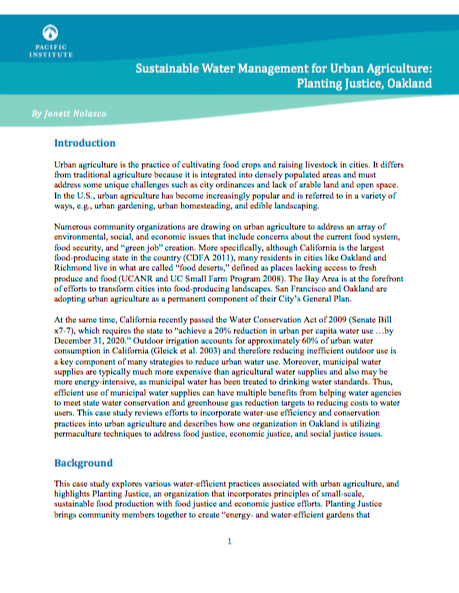
Sustainable Water Management for Urban Agriculture: Planting Justice, Oakland
January 30, 2013 | publication
The food justice movement has deep roots in the San Francisco Bay Area, where the organization Planting Justice is utilizing urban agriculture to address economic and social justice issues.
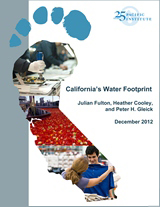
California’s Water Footprint
December 11, 2012 | publication
This report offers the first comprehensive assessment of California’s water footprint.
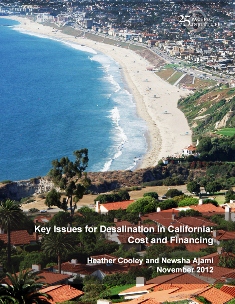
Key Issues in Seawater Desalination in California: Costs and Financing
November 27, 2012 | publication
Seawater desalination is gaining traction as a potential solution to water supply challenges in California, but economics – specifically, the cost of the water produced and the complex financial arrangements needed to develop a project – will ultimately determine the success and extent of this technology.
Sustainability Standards and Public Governance
November 26, 2012 | publication
An emerging theme of the framing project from its inception in 2009 was the growing awareness of the significance and complexity of the interactions between voluntary, non-governmental sustainability standards and national and international governance, raising fundamental questions about standards development, use, legitimacy and sustainability.
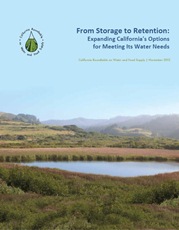
From Storage to Retention: Expanding California’s Options for Meeting its Water Needs
November 11, 2012 | publication
California’s ability to grow its wealth of specialty crops depends on retaining and storing water from the state's wet season for use during the long, dry summer season.

Sustainable Water Management
October 20, 2012 | post
Water is life. Growing pressure on water resources – from population and economic growth, climate change, pollution, and other challenges – has major impacts on our social, economic, and environmental well-being. Many of our most important aquifers are being over-pumped, causing widespread declines in groundwater levels.
Page 46 of 58



